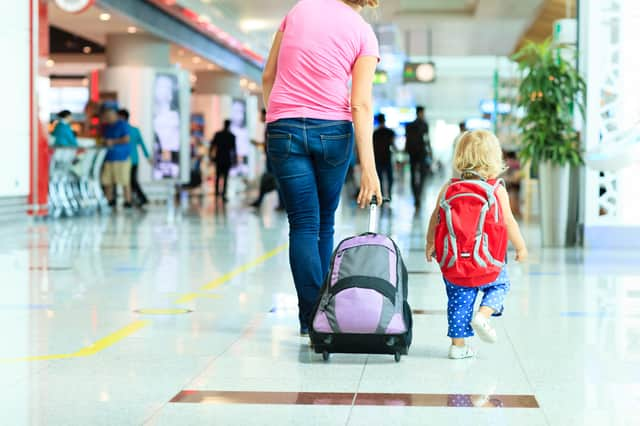This is everything you need to know about travelling when your child has a different surname


When travelling abroad, there are a lot of things to take into consideration before travelling - is your passport up to date, have you booked accommodation, have you brought enough sunscreen?
Something you may not have considered, though, is the potential difficulties you can face when you’re travelling abroad and your child has a different surname to you.
Why could my child’s surname be an issue?
Advertisement
Hide AdAdvertisement
Hide AdIn order to protect against child abduction, you could be refused at check in, turned away at the border and even stopped and held for questioning at the airport.
The Home Office official Twitter account explained, “We have a duty to safeguard children and to prevent people trafficking, child sexual exploitation and other crimes.
“That is why Border Force officers sometimes need to ask additional questions.”
This is everything you need to know to avoid this ordeal when travelling with a child whose surname doesn’t match your own.
Evidence of relationship to child
Advertisement
Hide AdAdvertisement
Hide AdBorder control staff may ask you and your child a few questions when they see that the surnames don’t match. The questions could relate to how the child knows you and what your relationship is.
Carrying evidence with you that proves your relationship isn’t compulsory when you’re travelling, but it could help speed up the process if you run into difficulties.
The government website states that these are things that you could bring with you as evidence:
Birth or adoption certificate that shows your relationshipDivorce, marriage or death certificates if you are the parent but have a different surnameA letter from the child’s parent (with contact details) giving you consent to travel with the child, if you’re not the parent. These are useful for grandparents taking grandchildren on holiday. You see a template consent letter on the government website here. You should also consider getting this letter notarised, as that guarantees its authenticity
Advertisement
Hide AdAdvertisement
Hide AdIf you can’t get permission from the person with parental responsibility, or you can’t get in touch with them, you can apply to a court for permission to take a child abroad
You’ll need to:
Give details of the trip, like the date of departure, when and how you’re returningThe contact details of people with parental responsibility staying in the UK
The government website says, “Find a solicitor to get legal advice about permission to take a child abroad.”
You can find a legal advisor on the Home Office website.
Check the country you’re travelling to
Specific countries have different rules regarding the travel of children, especially those who have a different surname to you.
Advertisement
Hide AdAdvertisement
Hide AdThe government website holds a list of foreign embassies in the UK that can help you with travel to their country.
You can see this list online here.
Check your airline
It’s also recommended to get in touch with the airline you’re travelling with to gain their advice.
They could have their own specifications for travelling with a child with a differing surname and will be able to guide you on how to be best prepared.
This article originally appeared on our sister site Edinburgh Evening News